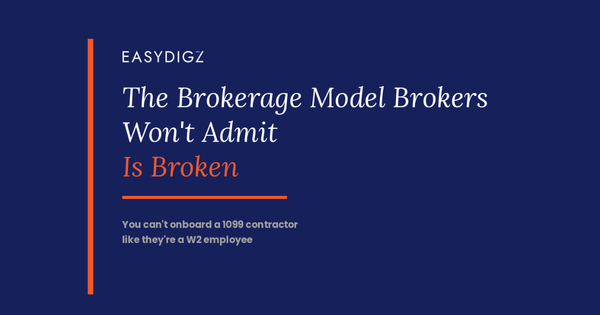Selling a property can feel like a big task, but it's a journey filled with opportunity in North Carolina. Whether you're letting go of a beloved family home or looking to make a smart investment move, this guide is here to make the process smooth and rewarding.
North Carolina's vibrant and diverse real estate market offers a range of homes, condos, and land waiting for the right buyer. The selling process requires understanding the local market, making smart decisions, and presenting your property in the best possible light.
Selling a property in North Carolina can be a complex process; it requires several steps for smooth selling. However, the steps to selling property in North Carolina are more complicated because North Carolina has its own rules and regulations for buying and selling property.
Explore the Market:
Before selling your house, check the current market trends in North Carolina through different forums providing authentic information. See what people are paying and how fast properties are being sold.
However, some times of the year might not be considered better for selling. Usually, spring and early summer are considered good. Make sure to put your home sale when the market is not competitive. It increases the chances of selling your home faster.
Assess your property:
Before listing your property, evaluating its condition and identifying the necessary repairs that can decrease its value is important. Assessing your property typically includes determining its current state, identifying areas that require repairs, and inspecting the roof to see if it has any leakage, plumbing problems, electrical system, and HVAC.
Buyers sometimes picture themselves in the space, so keep your space clean and decorated. First glance is the glance; enhance your curb appeal by tidying up your yard, mowing the lawn, and trimming the shrubs. Add the fresh paint to create a positive atmosphere for potential buyers.
Set up the right price.
Setting the right price when selling your home is essential for a successful sale. Research similar homes recently sold in your area to determine the optimal price. These comparisons, known as "comps," provide a baseline for your home's value based on size, condition, and location.
Assess your home's unique features and improvements. Factors like a renovated kitchen, a scenic view, or a spacious backyard can positively influence your home's value. A professional appraisal can also offer an unbiased estimate based on various aspects of your property.
Testing the market with a slightly higher price can allow room for adjustment if necessary. Striking the right balance between attracting buyers and ensuring a fair return for your home is crucial. It can be achieved through thorough research, expert advice, and an understanding of market dynamics.
Prepare home for sale:
Preparing your home for sale involves organizing essential documents and ensuring the property undergoes proper inspections. Here's how to handle both aspects:
● Property Deed:This document is the official proof of ownership, outlining the property transfer from the seller to the buyer. It includes the property's legal description, ownership history, and easements or restrictions.
● Mortgage Documents: Any documents related to your current mortgage or outstanding loans should be gathered. This includes the original loan agreement, current loan balance, payment schedule, and other relevant financial information about the property's financing.
● Homeowners Insurance: Details of your homeowner's insurance policy are essential. This includes the insurance company's coverage amount, policy terms, and contact information. Buyers will want to understand the property's insurance history and coverage for potential future issues.
● Property Tax Records: These documents provide a history of property taxes paid on the home. It showcases the property's tax assessment history and any outstanding tax amounts. This information is valuable for potential buyers to understand ongoing financial obligations.
● Homeowners Association (HOA) Documents: If your property is part of an HOA, gather documents such as the CC&Rs (Covenants, Conditions, and Restrictions), bylaws, rules, and regulations. Include information about HOA fees, pending assessments, and contact details for the HOA management.
● Utility Bills:Providing past utility bills can give potential buyers an idea of the average costs for water, electricity, gas, and other utilities. This information helps buyers estimate ongoing expenses associated with the property.
● Home Maintenance Records: Keep records of any repairs, renovations, or upgrades done to the property. Include receipts, warranties, and permits obtained for major work. This demonstrates the care and maintenance the property has received, potentially boosting its value.
If the pre-listing inspection reveals any issues, consider addressing them before listing the property. Repairing known issues or disclosing them can build trust with potential buyers.
However, Once you've gathered all the necessary documents and completed inspections, organize them neatly. Having these documents readily available for potential buyers can expedite the selling process and build confidence in your property's condition.
List your property for sale:
The traditional route of selling property in North Carolinathrough realtors can often lead to prolonged timelines for selling your property. While realtors offer expertise, their process might entail considerable time and sometimes delays in finding the right buyer.
This is where online real estate platforms shine. You can use online platforms to bypass the extended waiting periods often associated with realtors. Online platforms showcase your property to a wider audience.
Online listing platforms leverage technology and expansive networks to expedite the selling process, making it more convenient and efficient for sellers who seek a quicker turnaround in selling their property.
Selling property in North Carolina comes with unique considerations, but it can be a smooth process with the right approach. Remember, keeping your selling documents and agreements in order and on record is crucial. Whether it's the paperwork or the legal aspects, ensuring everything is properly documented will save you from potential hassles.







